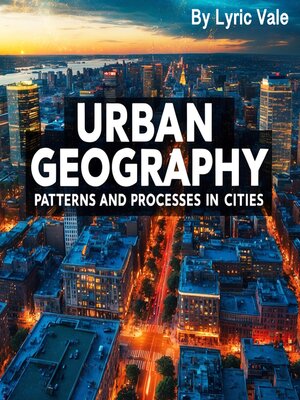
Sign up to save your library
With an OverDrive account, you can save your favorite libraries for at-a-glance information about availability. Find out more about OverDrive accounts.
Find this title in Libby, the library reading app by OverDrive.



Search for a digital library with this title
Title found at these libraries:
| Library Name | Distance |
|---|---|
| Loading... |
Urban geography is a specialized subfield within human geography that focuses on the spatial aspects of cities and urban areas. It seeks to understand the patterns, processes, and interactions that shape the development of cities, as well as the complex dynamics between urban spaces and the broader environment. This discipline is essential for comprehending how cities evolve, function, and adapt to the challenges of urbanization in a rapidly changing world.
The role of cities in geography is multifaceted. Cities are not only the centers of economic, political, and cultural activity but also crucial nodes in the global network. They function as hubs for trade, finance, education, and innovation, while also representing unique environments that reflect the broader social, economic, and environmental conditions of their regions. Urban areas often act as catalysts for growth and change, influencing not just their immediate surroundings but the larger global landscape as well.
At the core of urban geography lies the exploration of key concepts that shape the organization and transformation of cities. These concepts include urbanization, which refers to the increasing concentration of populations in cities, and urban systems, which describe the networks and interconnections between various urban centers. Additionally, urban geography explores issues like land use, transportation, housing, and social dynamics, all of which play a significant role in the functioning of urban environments.







